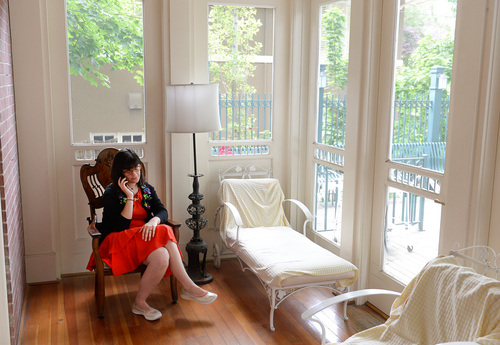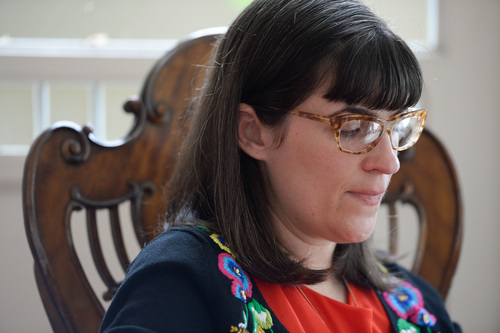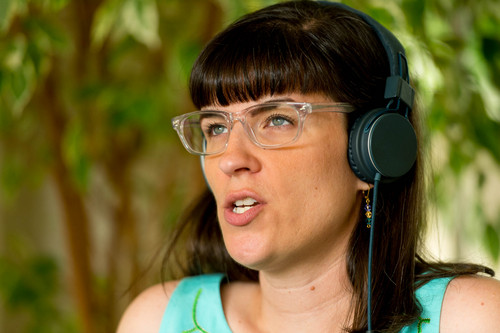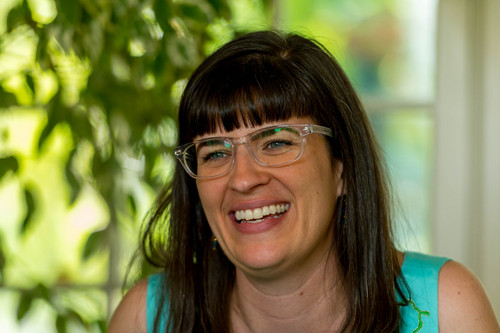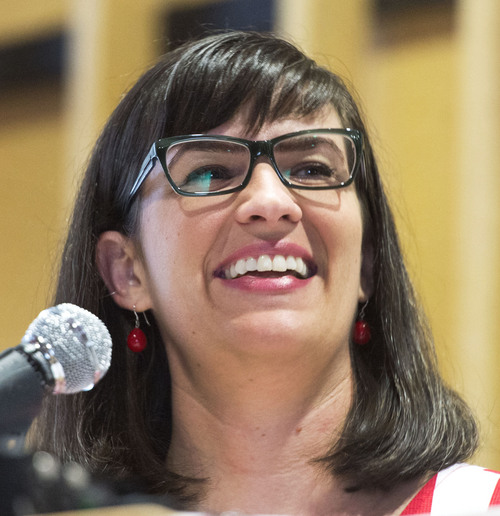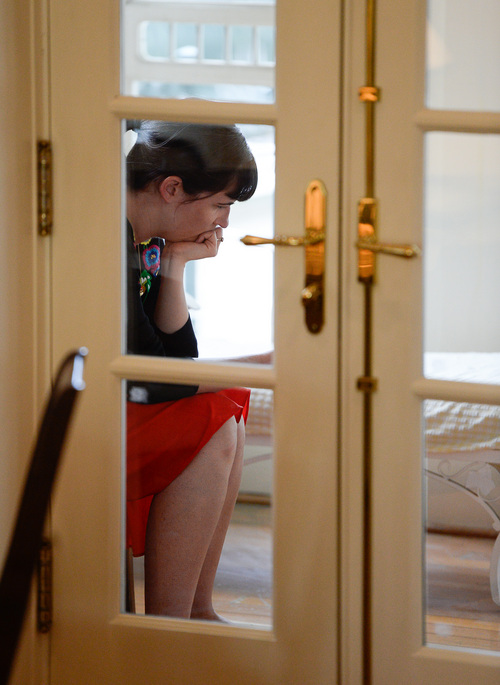This is an archived article that was published on sltrib.com in 2014, and information in the article may be outdated. It is provided only for personal research purposes and may not be reprinted.
Ordain Women founder Kate Kelly is an "apostate," the LDS Church's top spokesman declared in a recent radio interview.
So does that make the organization she founded to push for women's inclusion in the all-male Mormon priesthood an apostate group?
It is no idle question.
The Utah-based faith asks members seeking entrance to any Mormon temple to assert that they do not "support, affiliate with, or agree with any group or individual whose teachings or practices are contrary to or oppose those accepted by The Church of Jesus Christ of Latter-day Saints."
When asked specifically by The Salt Lake Tribune about Ordain Women, another church spokesman declined to label the group in any way, saying only that "local leaders are not provided a list identifying apostate groups for use during temple recommend interviews."
Rather, LDS Church headquarters provides lay clergy who preside over local congregations across the world "with principles," Dale Jones said in a statement. "After discussing with a member and taking into account individual circumstances, these leaders make their judgments based on those principles."
Jones reiterated that a Mormon leader might choose "not to issue a recommend if the member repeatedly acts in clear, open and deliberate public opposition to the church or persists in teaching false doctrine."
Kelly, who was excommunicated from the 15 million-member church in June by her Virginia bishop for "conduct contrary to the laws and order of the church," remains on Ordain Women's executive board.
"Ordain Women's efforts are a continuation of the countless hours of faithful service we as individuals contribute to the church each year," group spokeswoman Debra Jensen said Friday in a statement. "Clearly, even if there were a list of apostate groups, Ordain Women would not be on it."
Hundreds of practicing Mormons — women and men — have posted profiles on Ordain Women's website in support of the movement, and some have had their temple privileges yanked.
Many Latter-day Saints have criticized the group, while others have seen value in what the feminists have done as the growing faith grapples with gender issues.
"I would say Kate Kelly and Ordain Women, the questions they have asked, the courage they have exhibited, the discomfort they have created, have all contributed to greater discussion," Brigham Young University religion professor Camille Fronk Olson said at a Provo book launch, according to representatives of Greg Kofford Books, on hand to celebrate the release of "Women at Church" by Neylan McBaine.
"People now realize there are some women who are hurting — and men who are hurting," Olson said at the videotaped gathering. "I would say that it has contributed tremendously."
The temple-recommend question about opposition groups is one of 14 asked in a "worthiness interview" and traditionally has been believed to be referring to polygamous offshoots. Other questions include whether members pay tithing, sustain LDS leaders and heed the faith's health code by shunning alcohol, tobacco, coffee and tea.
Providing principles for such interviews but allowing final decisions to be made independently, said Kathleen Flake, professor of Mormon studies at the University of Virginia, "indicates the amount of discretion invested in local leaders, and reflects the church's commitment to the principle of revelation."
From the outside, this policy may look capricious, but it's a crucial element of LDS Church governance, she says. "Mormonism wagers a lot on this principle of [individual] revelation."
Twitter: @religiongal


